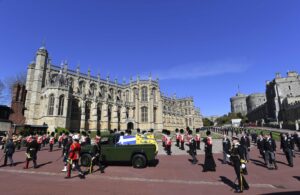Culture Desk
Today marks the 11th death anniversary of eminent poet Shamsur Rahman. On the occasion of his death anniversary, National Poetry Council, Shamsur Rahman Smrity Parishad, Poet Shamsur Rahman Foundation and the family of the poet will lay floral wreaths on his graveyard in Banani in the capital today at 10.30am.
Shamsur Rahman was noted as an urban poet, columnist and editor. Major themes in his poetry and writings include liberal humanism, human relations, romanticism, democracy, religious fundamentalism and more.
The bard was born in his grandfather’s house in Dhaka. His paternal home is situated on the bank of the river Meghna in Narshingdi district. He was the fourth of thirteen children. He passed matriculation in 1945. Later he took his I.A. as a student of Dhaka College. The poet started writing poetry at the age of 18, just after graduating from Dhaka College. He studied English Literature at Dhaka University for three years. After a break, he received his B.A. in 1953 and consequently an MA.
The bard wrote more than 60 books of poetry. His first book of poetry, “Prothom Gaan Dwitio Mrittyur Agey,” was published in 1960. He witnessed the political turbulence of the 60’s and 70’s, which got reflected in his poems clearly. He wrote his famous poem “Asad-er Shirt” as a tribute to the mass uprising of 1969. During the Liberation War he wrote a number of poems. The poet had a long career as a journalist and served as the editor of a national daily, Dainik Bangla and the weekly Bichitrain the 1980s.
About Shamsur Rahman, renowned poet and president of National Poetry Council Muhammad Samad said, “Rahman was undoubtedly one of the foremost Bengali poets. I had spent a fair share of time with him at seminars, recitations, tours overseas and cultural programmes. I fondly remember our times together. His poems and essays motivated people during historic movements. He was mainly recognised for his choice of words and phrases. His poetry remarkably articulates urban alienation. He was deeply influenced by Jibanananda Das and Sudhindranath Datta.”
Veteran poet Mahadev Saha recalled: “Rahman was undoubtedly one of the foremost Bengali poets. I met him in the late ’60s in Dhaka. I had spent a fair share of time with him at seminars, recitations, tours overseas and cultural programmes. I fondly remember our times together. In 1972, we went to Kolkata to attend ‘Bharat Bangladesh Moitri Mela’. Laila Samad (noted writer) and her husband were also with us. We stayed at South Point School dormitory. The school was renowned for having some veteran writers as teachers, including Komol Kumar Majumdar and Ashish Shanyal. We stayed up the whole night, and exchanged views on various issues.”
Among Rahman’s famed works are “Roudro Korotite”, “Biddhasta Nilima”, “Niraloke Dibyaroth” and “Adiganta Nagna Padaddhani”. Besides poetry, he also contributed to the realms of essays, stories, novels, translations and columns. Rabindra Bharati University and Jadavpur University of India conferred honorary D.Lit. degrees on him. His poems have been translated in many languages. Rahman was a recipient of Swadhinata Padak, Ekushey Padak, Adamjee Puroshkar, Bangla Academy Puroshkar and Jibanananda Puroshkar.
The poet passed away in 2006.




